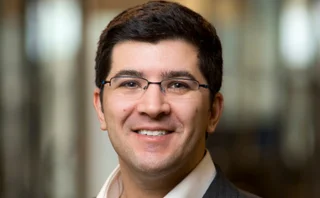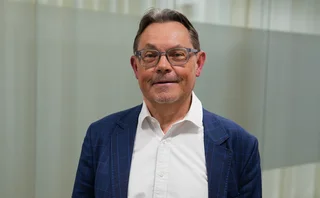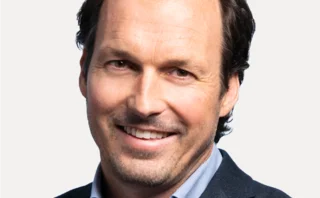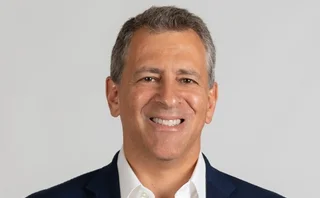
Emissions house of the year: Marex
Energy Risk Awards 2022: Large revenue gains for broker whose carbon market involvement goes beyond the norm
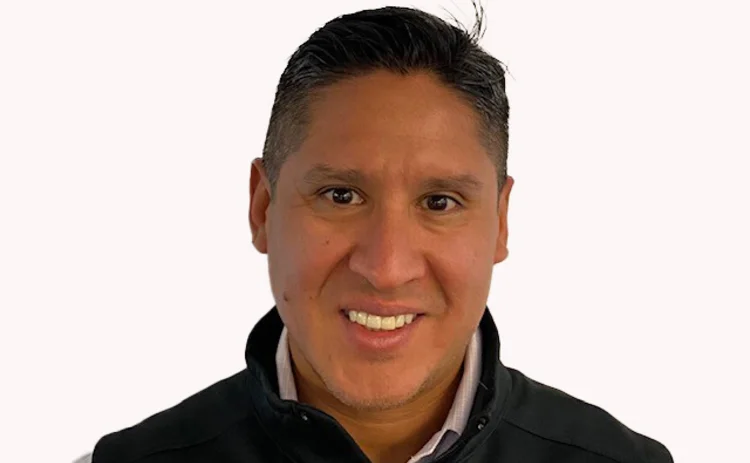
The accelerating low-carbon transition is paying dividends for Marex’s environmental markets business, says Jack Velasquez, the global financial services firm’s New York-based director of environmental markets, North America.
“We have seen a real corporate shift towards a sustainable future,” he says. “It started to percolate about a year ago. We started seeing a real change in the way people think about decarbonising the world.”
Increased demand for carbon offsets and renewable energy certificates to meet voluntary commitments has helped drive an almost 30% annual increase in revenues for the team, which won Energy Risk’s 2022 Emissions house of the year award. Interest is spreading from high-profile giants such as Amazon, Google and Facebook, which have been buying offsets for some years, “to literally mom and pop shops that want to be green”, says David Nussbaum, head of North American carbon markets at the firm, which has brokered environmental markets since 2002.
Meanwhile, Marex has also benefited from growing institutional interest in Europe’s carbon market, which raced up in value in 2021 before succumbing to intense volatility in response to the Russian invasion of Ukraine.
“Volatility brings opportunity,” says Nussbaum, who notes that growing liquidity in the European carbon market has drawn interest from investment firms in trading that market and in looking at North America’s carbon markets, centred on California in the west and the Regional Greenhouse Gas Initiative states in the east.
We have seen a real corporate shift towards a sustainable future
David Nussbaum, Marex
“The North American carbon market in the last 18 months has seen a dramatic increase in non-environmental market investors, [including] a tremendous number of global macro funds that previously had no exposure,” he says. Here, he adds that the firm has benefited from its futures commission merchant licence, which he says differentiates Marex from its competitors. “That has opened the doors to a lot of conversations with clients that potentially we wouldn’t speak to otherwise,” he says.
The firm has staffed up in response: it increased the size of its North American alternative energy and environmental products team from five to nine in the third quarter of 2021 and is expanding its European emissions product suite throughout 2022.
Marex is also investing time and resources in technological innovation that goes beyond what might be expected from a brokerage. Specifically, the firm is leveraging a relationship with Oxford University’s Smith School of Enterprise and the Environment, where it sponsors a research programme on the commodities industry, to apply cutting-edge satellite technology to support the voluntary carbon market.

“Looking at how the voluntary carbon market is evolving, we were aware that there are some real bottlenecks,” says Marex’s Singapore-based global head of market analytics Guy Wolf. “One of the challenges is the burden placed on buyers of any offsets to do an enormous amount of due diligence in any individual project.”
However, Wolf realised satellite technology had reached “a real tipping point”, where the resolution of commercially available satellite images had increased from 10m2 per pixel to 0.5m2 and above. “It’s now at the point where, using artificial intelligence, you can literally count individual trees” in carbon market forestry projects, he says.
Marex was approached by Global Mangrove Trust, a Singapore-based NGO, to help estimate carbon sequestration in mangrove restoration projects in South-east Asia. To do so, it will work with OxCarbon, a spin-out not-for-profit from the Smith School supported by Marex, which will use satellite imagery to verify the carbon captured by the mangroves. The initiative was also supported with a grant from the Monetary Authority of Singapore.
The pilot projects, seeded by Marex, will initially generate around 100,000 tonnes of carbon reductions each year, which will be used to offset the brokerage’s own emissions. Wolf says projects in the pipeline could generate around one million tonnes annually. He expects that, towards the end of this year, Marex will come to market with a pre-issuance auction of carbon reductions from the pipeline.
“What we’re doing is demonstrating a template that others can follow,” says Wolf, adding that remote monitoring is much more efficient and scalable than on-the-ground verification. “This isn’t the sort of thing that a broker would traditionally do,” he acknowledges. “But, at the end of the day, we’re a client service business. This is another form of service that we can offer to our clients.”
Nussbaum points to how corporate perceptions of carbon emissions, and the need to address them, is shifting. Demand for carbon offsets used to be dependent on a strong economy providing corporate buyers with cash to spare. Now, “carbon exposure is a line item in these corporate balance sheets”. This change is set to supercharge the offset market, he believes.
Only users who have a paid subscription or are part of a corporate subscription are able to print or copy content.
To access these options, along with all other subscription benefits, please contact info@risk.net or view our subscription options here: http://subscriptions.risk.net/subscribe
You are currently unable to print this content. Please contact info@risk.net to find out more.
You are currently unable to copy this content. Please contact info@risk.net to find out more.
Copyright Infopro Digital Limited. All rights reserved.
As outlined in our terms and conditions, https://www.infopro-digital.com/terms-and-conditions/subscriptions/ (point 2.4), printing is limited to a single copy.
If you would like to purchase additional rights please email info@risk.net
Copyright Infopro Digital Limited. All rights reserved.
You may share this content using our article tools. As outlined in our terms and conditions, https://www.infopro-digital.com/terms-and-conditions/subscriptions/ (clause 2.4), an Authorised User may only make one copy of the materials for their own personal use. You must also comply with the restrictions in clause 2.5.
If you would like to purchase additional rights please email info@risk.net
More on Commodities
Energy Risk Asia Awards 2025: The winners
Winning firms showcase the value of prudent risk management amid challenging market conditions
Data and analytics firm of the year: LSEG Data & Analytics
Energy Risk Awards 2025: Firm’s vast datasets and unique analytics deliver actionable insights into energy transition trends
OTC trading platform of the year: AEGIS Markets
Energy Risk Awards 2025: Hedging platform enhances offering to support traders and dealers in unpredictable times
Electricity house of the year: Natixis CIB
Energy Risk Awards 2025: Bank launches raft of innovative deals across entire electricity supply chain
Voluntary carbon markets house of the year: SCB Environmental Markets
Energy Risk Awards 2025: Environmental specialist amplifies its commitment to the VCM
Sustainable fuels house of the year: Anew Climate
Energy Risk awards 2025: Environmental firm guides clients through regulatory flux
Weather house of the year: Parameter Climate
Energy Risk Awards 2025: Advisory firm takes unique approach to scale weather derivatives markets
Hedging advisory firm of the year: AEGIS Hedging
Energy Risk Awards 2025: Advisory firm’s advanced tech offers clients enhanced clarity in volatile times

